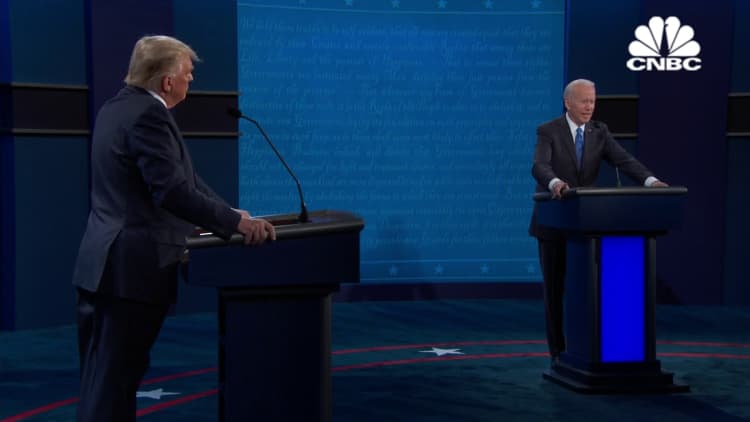Faith Booker spent Election Night closely watching the votes come in, not only for the presidential race, but for a Florida ballot initiative that could change her life: increasing the minimum wage.
Florida narrowly passed the minimum wage hike on Tuesday, with 60.8% of voters approving Amendment 2, according to the Florida Division of Elections. The amendment, which needed 60% of the vote to pass, is set to increase the state's minimum wage to $15 per hour by 2026. Currently, the minimum wage in Florida is $8.56, thanks to voters approving a minimum wage hike in 2004 that included inflation adjustments built in.
"This will give myself and other people that are struggling a lot of hope," Booker says.
The passage of Amendment 2 is predicted to increase wages for 2.5 million workers in Florida, according to the Florida Policy Institute. That includes Booker, 32, a mother of five in Lakeland, Florida, who works about 60 to 70 hours a week between two fast food jobs to keep her family afloat. At McDonald's, where she's worked for two years, she makes $9.70, but at her second job, Burger King, she makes the minimum wage, just $8.56.
Although Booker has been continuously working throughout the pandemic, she says the increase ― which is set to phase in starting next September by bumping the minimum wage to $10 and then adding $1 every year after that until 2026 ― will be a major help and may allow her to cut back her hours to spend more time with her children.
"I've been trying to stay afloat with everything and just do what needs to be done," she says.
Over the past few months, Booker says she's been encouraging everyone to vote and even voted early this year. "I was so proud of myself," she says.
She tried to motivate others to do the same. "A lot of coworkers at my job have said, I'm not voting," Booker says. "I'm like, you should, go vote. Every vote really counts."
In passing the measure Tuesday, Florida joins California, Connecticut, Illinois, Maryland, Massachusetts, New Jersey, and New York, as well as the District of Columbia, in making the move to set $15 as the state minimum wage.
Opponents of the $15 minimum wage, including the Florida Chamber of Commerce, argue that businesses will not be able to afford the higher base pay and it could lead to job losses. In fact, recent research finds that federal legislation to raise the minimum wage to $15 per hour nationwide would result in the loss of 2 million jobs. Sectors such as food services, arts, entertainment, and recreation and accommodation would account for half of those projected job losses.
Advocates, on the other hand, claim wages simply are not keeping up as day-to-day costs continue to soar. By 2024, a single adult will need to earn at least $15 an hour, a gross income of roughly $31,200 per year, to achieve an adequate standard of living nationwide, according to a report from the National Employment Law Project. In some areas, such as New York and California, this is already the minimum required.
It's been over a decade since Congress set the current federal minimum wage at $7.25. The Democrat-controlled House of Representatives passed the Raise the Wage Act in July 2019, which aims to gradually raise the federal minimum wage to $15 by 2025.
But the Republican-controlled Senate has yet to pick up the legislation. Currently, there are still 21 states where the minimum wage remains frozen at $7.25.
Check out: A guide to resources that can help you pay bills now, from rent to health care
Don't miss: Chase Sapphire Preferred is offering a massive 80,000-point bonus for a limited time



